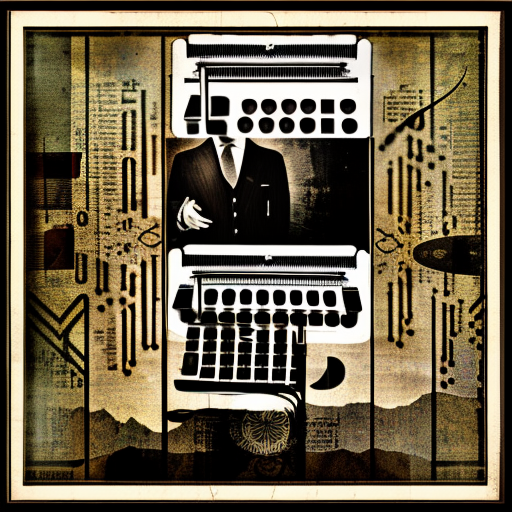One-line Summary:
Transcription is a captivating historical fiction novel by Kate Atkinson that explores the life of Juliet Armstrong, a young woman recruited by MI5 during World War II to transcribe conversations between British spies and Nazi sympathizers.
The Life of a Transcriptionist Spy
In Transcription, Kate Atkinson takes readers on a thrilling journey through the life of Juliet Armstrong, a young woman living in London during World War II. Juliet is recruited by MI5, the British intelligence agency, to work as a transcriptionist, transcribing conversations between British spies and Nazi sympathizers. At first, Juliet is excited about her new role, believing that she is playing a vital part in the war effort. However, as she becomes more deeply involved in the world of espionage, she realizes that things are not as straightforward as they seem.
As Juliet transcribes the conversations, she starts to develop relationships with the spies, including the enigmatic Godfrey Toby. She is drawn into their dangerous world, where loyalty and betrayal are constant companions. Juliet’s job becomes even more complicated when she is asked to go undercover and infiltrate a group of Nazi sympathizers. As she navigates this treacherous path, she must confront the moral dilemmas of her actions and the consequences they have on those around her.
The Complexity of Identity
One of the central themes in Transcription is the complexity of identity. Juliet finds herself constantly shifting between different roles and personas, both in her work as a transcriptionist and in her personal life. She must navigate the blurred lines between truth and deception, loyalty and betrayal. As the story unfolds, Juliet’s true identity becomes increasingly elusive, leaving readers questioning who she really is and what she truly believes in.
Throughout the novel, Atkinson explores the idea that identity is not fixed, but rather a fluid and ever-changing concept. Juliet’s experiences as a spy force her to confront this reality, as she is forced to adopt different identities to survive. This exploration of identity adds depth to the story, highlighting the complexities of human nature and the lengths people will go to protect themselves and their beliefs.
The Impact of Secrets
Secrets play a significant role in Transcription, shaping the lives of the characters and driving the narrative forward. Juliet is burdened with the weight of the secrets she holds, both as a transcriptionist and as a spy. These secrets have far-reaching consequences, not only for Juliet but for those around her. Atkinson skillfully explores the power of secrets to shape lives and the toll they can take on individuals.
As the story progresses, the secrets become increasingly intertwined, leading to unexpected twists and turns. The tension builds as Juliet’s past catches up with her, and she must confront the consequences of her actions. Atkinson masterfully weaves together the threads of secrecy, creating a gripping and suspenseful narrative that keeps readers on the edge of their seats.
Key Takeaways:
- Transcription explores the life of a young woman recruited by MI5 during World War II to transcribe conversations between British spies and Nazi sympathizers.
- The novel delves into the complexities of identity and the fluid nature of who we are.
- Secrets play a significant role in shaping the lives of the characters and driving the narrative forward.
“We are all multiple, even the simplest of us, and the best of us can be devious and wicked.” – Kate Atkinson
In Transcription, Kate Atkinson delivers a captivating story that combines historical fiction with espionage. Through the eyes of Juliet Armstrong, readers are taken on a thrilling journey filled with secrets, moral dilemmas, and the complexities of identity. Atkinson’s skillful storytelling keeps readers engaged from beginning to end, making Transcription a must-read for fans of historical fiction and espionage novels.












